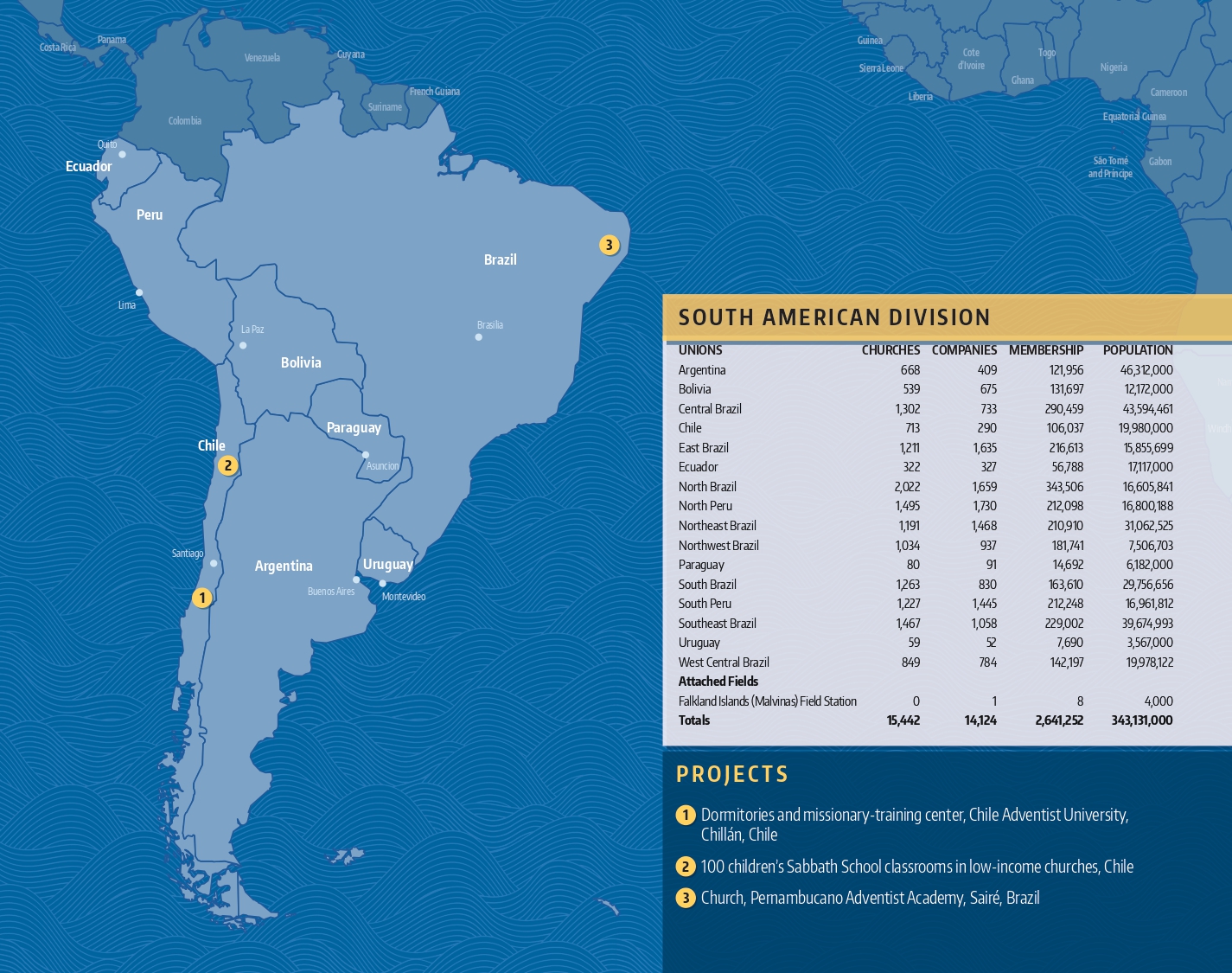God’s Online Call: Adult Mission Story for November 8, 2025
Samuel couldn’t understand why he was failing his university classes in Chile. He had always done well in high school. But in his first semester at the university, he failed algebra, calculus, physics, and chemistry — the very classes that he needed to pass to become an electrical engineer.
His second semester wasn’t going any better. Then, just as he was preparing for final exams, he received an odd message.
A relative wrote under a social media post, “Samuel, study theology.” The social media post was a congratulatory message to Adventist pastors during pastors’ appreciation month.
Samuel thought the message was rather abrupt. The relative hadn’t even greeted him or asked how he was doing.
He replied, “Hello! How are you?”
The relative wrote back, “I’m fine. Study theology.”
It was not the first time that someone had suggested that Samuel become a pastor. He replied in the same way that he always did.
“I don’t need to study theology to visit church members and preach and work for the church,” he wrote. “But if the Lord calls me, I’m willing.”
The relative replied, “Pray.”
Samuel agreed to pray, and he did.
As he walked to final exams, he looked at the sky and said, “Lord, is that You? Are You really calling me? If You are calling me, I don’t want to reject it. But I really need You to confirm. I don’t want this to be just in my head. I don’t want this to be Plan B just because Plan A didn’t work.”
Changing his major would mean giving up everything. It would mean leaving a career in engineering, moving far from home to Chile Adventist University, and potentially disappointing his parents.
Then Samuel remembered that Abraham had followed God without knowing where he was going. He remembered how the disciples had followed Jesus. He also remembered people who had rejected Jesus. He thought about the people who had told Jesus that they first needed to say goodbye to their parents or claim an inheritance. He didn’t want to be like those who rejected Jesus.
Samuel kept praying.
In his third week of prayer, he had a breakthrough. He remembered that when he had been baptized, he had chosen a Bible passage to be read at the occasion. For some reason, he had not chosen a verse that is customarily read at baptisms in Chile. He had been studying Matthew at the time and had chosen Matthew 28:19, 20, where Jesus said, “Go therefore and make disciples of all the nations, baptizing them in the name of the Father and of the Son and of the Holy Spirit, teaching them to observe all things that I have commanded you; and lo, I am with you always, even to the end of the age” (NKJV). Thinking about the Bible passage, Samuel saw that it fit into the idea that God wanted him to be a pastor.
Samuel also remembered his own name. Like Samuel’s parents in the Bible, his parents hadn’t been able to have children. Before marrying his mother, his father had suffered testicle cancer and nearly died. A doctor had saved his life by removing the testicle.
Afterward, the doctor had informed him that he would be unable to have children. But God had other plans.
After marriage, Samuel’s parents had prayed for a child and, when Samuel was born, chose his name, which means “asked of God.” They had dedicated him to serve God.
When Samuel remembered his miraculous birth and the Bible passage that he had chosen for his baptism, he prayed, “Lord, I accept Your call. Now help me talk to my parents.”
Samuel’s mother immediately welcomed his decision.
“I knew engineering wasn’t right for you,” she said.
But his father struggled.
He had planned on having an engineer for a son. So much money had been spent in preparing him to become an engineer. Samuel had a younger sister who was already studying at Chile Adventist University, and the family home would be empty without Samuel.
But finally, Father accepted that God was calling Samuel to study theology.
Samuel left his university without any debt, and he was accepted at Chile Adventist University just a week before classes started. The relative who had encouraged him to study theology was thrilled!
Today, Samuel is 21 and studying to become a pastor at Chile Adventist University.
“I feel so grateful to God for the calling that He has given me,” he said. “I’m willing to follow Him wherever He calls me.”
Part of this quarter’s Thirteenth Sabbath Offering, also known as the Quarterly Mission Project Offering, will go to Chile Adventist University in Chillán, Chile. The offering will allow 50 more students to live in dormitories on campus. Currently, the university has about 3,000 students, the vast majority of whom are not Adventist and live off campus. The expanded dormitories will be open to all but are especially needed by Adventist theology and education students who come to the university from far-off places and are studying to work in Adventist churches and schools. Samuel lives in one of the dormitories that will be expanded with the offering. Thank you for planning a generous offering.



